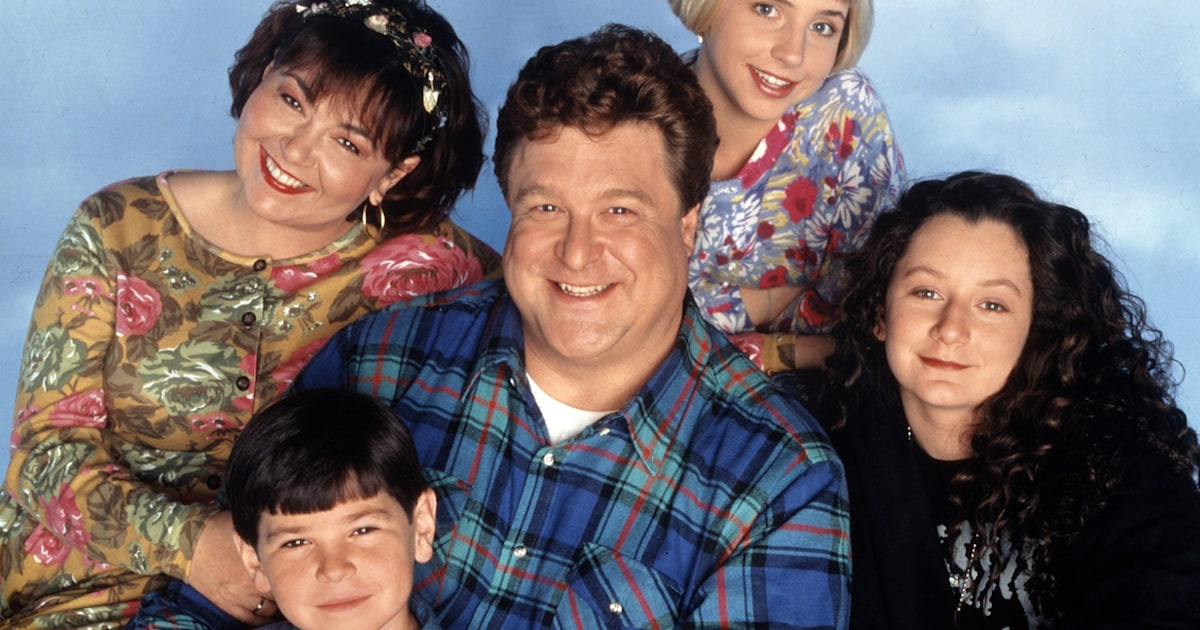
Introduction
When Roseanne first aired on ABC in 1988, it wasn’t just another sitcom—it was a cultural revolution. The series, centered around the working-class Conner family, became an instant classic, making Roseanne Barr a household name and leaving a lasting impact on American television. But what many don’t know are the behind-the-scenes secrets and controversies that would change the course of the show’s legacy. One iconic moment, in particular, turned everything upside down, impacting the careers of the stars and the entire future of the show. In this article, we’ll dive into the untold stories of Roseanne, revealing shocking secrets that you probably never knew, and exploring how a single incident shifted the entire landscape of the show forever.
The Birth of Roseanne
The Roseanne sitcom, created by Roseanne Barr and Matt Williams, premiered in 1988 at a time when American television was dominated by idealized family shows. The series broke ground with its raw portrayal of a blue-collar family struggling to make ends meet in a small Midwestern town. The lead character, Roseanne Conner, played by Barr herself, was unlike any other TV mom at the time—she was brash, unapologetically funny, and incredibly relatable. The show’s success was immediate, resonating with millions of viewers who had never seen their everyday struggles depicted so honestly on screen.
But what truly made Roseanne groundbreaking was its ability to address social issues with humor—topics like unemployment, domestic struggles, and working-class life became central themes. The show was so powerful that it became a voice for the American working class and earned Barr multiple accolades, including an Emmy nomination.
Behind the Iconic Characters
The characters on Roseanne were more than just fictional—they were reflections of real people living in tough circumstances. Roseanne herself was a tough, no-nonsense mother, who struggled to balance work, family, and personal challenges. Her husband, Dan Conner (played by John Goodman), was the heart and soul of the show—supportive but flawed, providing the perfect counterpart to Roseanne’s fiery personality.
Their children—Becky, Darlene, and DJ—represented the evolving dynamics of American youth. While Becky (Lecy Goranson) and Darlene (Sara Gilbert) were the more prominent child characters, DJ (Michael Fishman) often played a subtle but important role, adding to the show’s diverse portrayal of family life.
Yet, despite its success, the cast was often caught in the middle of rising tensions that would eventually alter the show’s trajectory.
The Controversial Moment That Changed Everything
In 1997, Roseanne reached its peak, with millions of viewers tuning in every week. However, it was in the following years that the cracks began to show. The behind-the-scenes tension between Barr and the cast became more evident, particularly after Barr’s decision to direct and take full creative control of the show.
In 1997, Barr made a bold and highly controversial decision to shift the show’s direction. She killed off the character of Dan Conner in the season finale, a move that shocked fans and left the future of the series uncertain. The storyline—Roseanne winning the lottery and revealing the family’s previous troubles were merely a figment of her imagination—was widely criticized, and many felt that the ending was too abrupt and unsatisfying. Fans were furious, and some even called for a boycott of the show.
This decision, along with Roseanne’s increasing eccentricities on set, would lead to her departure from the series and the show’s eventual cancellation in 1997. The sudden decline left many wondering what could have been had Barr not made such a dramatic choice. But as we now know, this wasn’t the end of Roseanne.
The Scandals and the Comeback
Fast forward to 2018. After years of being absent from the public eye, Roseanne was revived for a new season, bringing Barr and the original cast back together. The show’s revival was a major success, but it didn’t last long. Roseanne Barr found herself at the center of controversy once again after posting a racially insensitive tweet about former Obama adviser Valerie Jarrett. This tweet led to Barr’s immediate firing from ABC, and the show was canceled once again.
The scandal shocked the entertainment world and ignited the debate surrounding “cancel culture” and the consequences of social media behavior. Barr’s fall from grace was swift and harsh, but it also brought new attention to the ongoing issues surrounding celebrity behavior and accountability.
Despite the scandal, Barr’s legacy as an iconic television figure remains undeniable. Her influence on TV comedy, and her portrayal of the American family, has left a lasting mark that cannot be erased. Will she ever return to television? Only time will tell, but one thing is for sure—Roseanne will always be a part of TV history.
Conclusion
Roseanne was more than just a sitcom—it was a groundbreaking show that explored real-life struggles with humor and authenticity. While its legacy is marred by controversy, the cultural impact it had on television is undeniable. From Roseanne Barr’s fiery personality to the iconic moments that shaped the show’s journey, Roseanne will forever be remembered as one of the most influential TV shows of its time.
